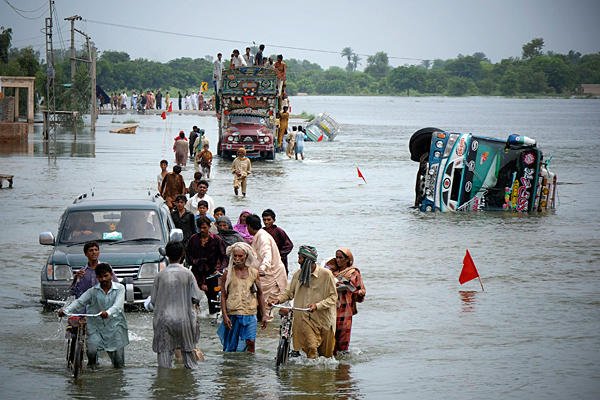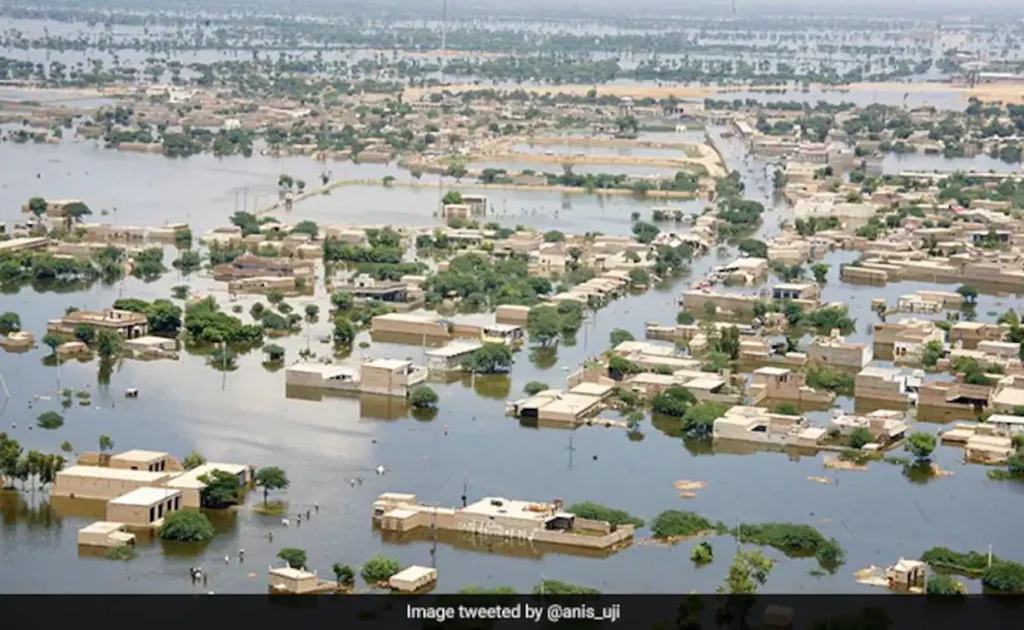A recent report by the Economist Intelligence Unit classified Pakistan as highly susceptible to the impacts of climate change.
The report emphasizes that climate change will remain the primary force influencing policy-making and societal shifts in the foreseeable future.
It also highlights the need for developed nations to provide greater aid to poorer countries. The third world countries are highly venerable to climate change consequences.
The report cites estimates from the UN Intergovernmental Panel on Climate Change, which indicate that underdeveloped countries in Africa will experience the most severe effects of irreversible climate change.
Even if countries meet the 2°C target for global temperatures, the report suggests that the impacts of extreme weather events such as storms, droughts, heatwaves, and flooding will still be unprecedented.
Pakistan, which witnessed devastating floods in 2022, has taken notable steps to mitigate the physical impacts of climate change.

The ‘Recharge Pakistan’ project, aimed at flood and water resource management in the Indus Basin river system, has been approved for funding of $77.8 million by the Green Climate Fund (GCF). The majority of the funds, $66 million, will be provided by the GCF as grants, following Pakistan’s request for grant-based climate financing.
While initiatives like Recharge Pakistan are crucial in helping vulnerable countries address climate change risks. The EIU report emphasizes the need for additional funding to combat climate change. One of the challenges in meeting climate goals is the lack of private investment. Approximately 70% of climate financing in the South Asian region comes from the public sector.
Furthermore, the report highlights the impact of the 2022 Ukraine war, which has disrupted global supply chains and reversed progress in clean energy initiatives. As countries address the energy crisis, there is a shift toward increased reliance on fossil fuels. Pakistan is among the top 10 countries where fossil fuel consumption is rising and is expected to continue throughout 2023.
Rise in Food Prices
Food prices are also expected to increase. The lack of rain in North Africa threatens harvests and low rainfall in Europe also contributes to rising food prices. In Europe, rising food prices are already contributing more to annual inflation than energy. The lower crop yields in 2023 may further exacerbate the cost-of-living crisis. It poses challenges for governments in dealing with public discontent.


